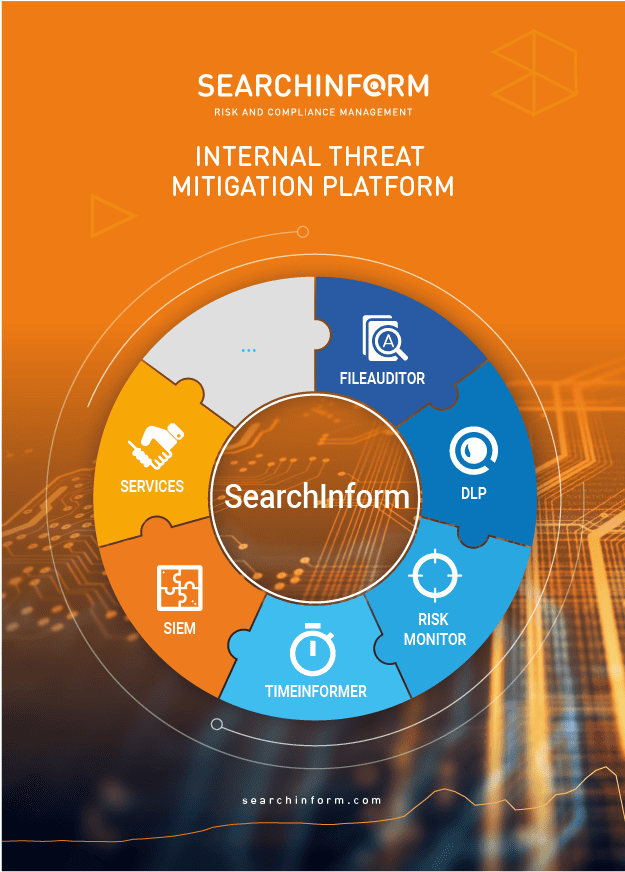Understanding the Personal Data Protection Act (PDPA) of 2012 in Singapore
Overview of PDPA in Singapore
The Personal Data Protection Act (PDPA) in Singapore is a comprehensive data protection law aimed at regulating the collection, use, disclosure, and care of personal data. It was enacted in 2012 and came into full effect in 2014. The PDPA aims to safeguard individuals' personal data while facilitating the reasonable use of personal data for legitimate purposes.
The PDPA was introduced to address concerns regarding the increasing collection and use of personal data by organizations in Singapore. It seeks to balance the need for organizations to use personal data for legitimate purposes with the rights of individuals to have their personal data protected. The law applies to all private sector organizations in Singapore, including businesses and nonprofit organizations, regardless of size.
Key Definitions:
Understanding key definitions is crucial for interpreting and applying the Personal Data Protection Act (PDPA) in Singapore. Here are some important definitions provided by the PDPA:
- Personal Data: Refers to data, whether true or not, about an individual who can be identified from that data; or from that data and other information to which the organization has or is likely to have access.
- Data Subject: An individual who is the subject of personal data.
- Data Controller: An organization that collects, uses, or discloses personal data in Singapore, or on behalf of which personal data is collected, used, or disclosed in Singapore.
- Data Processor: A person, other than an employee of the data controller, who processes personal data on behalf of the data controller.
- Consent: Any freely given, specific, informed, and unambiguous indication of the individual’s wishes by which he or she, by a statement or by a clear affirmative action, signifies agreement to the collection, use, or disclosure of personal data about him or her.
- Purpose: Refers to the reason for which personal data is collected, used, or disclosed, as determined by the organization.
- Notification: Informing an individual of the purposes for the collection, use, or disclosure of personal data about the individual.
- Transfer: The conveyance of personal data from one place to another, whether within Singapore or across national borders, by any means.
- Data Protection Officer (DPO): A person appointed by an organization to be responsible for ensuring that the organization complies with the PDPA.
- Anonymization: The process of irreversibly transforming personal data in such a way that a data subject cannot be identified from the data.
- Retention Limitation: Refers to the obligation not to retain personal data longer than necessary for the fulfillment of the purposes for which it was collected.
- Reasonable Efforts: Efforts that a reasonable person would consider appropriate in the circumstances to protect personal data.
- Complaint: An expression of dissatisfaction by an individual relating to the handling of personal data about the individual by an organization.
These definitions provide a foundation for understanding the rights and obligations outlined in the PDPA and are essential for ensuring compliance with the law. Organizations subject to the PDPA must adhere to these definitions when collecting, using, disclosing, and managing personal data in Singapore.

Compliance Requirements under PDPA in Singapore
Compliance with the Personal Data Protection Act (PDPA) in Singapore involves several key requirements that organizations must adhere to. These requirements are designed to ensure that personal data is collected, used, and managed responsibly and in accordance with the principles of the PDPA. Here are the main compliance requirements under the PDPA:
- Consent: Organizations must obtain consent from individuals before collecting, using, or disclosing their personal data, except in specific situations where consent is not required, such as for legal or security purposes.
- Notification: Organizations must inform individuals of the purposes for which their personal data is being collected, used, or disclosed at the time of collection. This notification should be clear, accessible, and easily understandable.
- Purpose Limitation: Personal data can only be collected, used, or disclosed for purposes that a reasonable person would consider appropriate in the circumstances. Organizations should not use personal data for purposes beyond what was consented to or notified to the individual.
- Access and Correction: Individuals have the right to access their personal data held by organizations and to request corrections if the data is inaccurate or incomplete. Organizations must respond to such requests within a reasonable timeframe.
- Accuracy: Organizations must make reasonable efforts to ensure that personal data collected is accurate and up to date. This may involve verifying the accuracy of data at the point of collection and updating it as necessary.
- Protection: Organizations are required to protect personal data in their possession or control by implementing reasonable security arrangements to prevent unauthorized access, collection, use, disclosure, copying, modification, disposal, or similar risks.
- Retention Limitation: Personal data should not be kept longer than necessary for the fulfillment of the purposes for which it was collected. Organizations should establish retention policies and procedures to ensure compliance with this requirement.
- Transfer Limitation: Organizations must ensure that personal data transferred outside Singapore is adequately protected. This may involve implementing contractual or other measures to ensure that the data is subject to comparable protection standards.
- Data Protection Officer (DPO): Organizations are encouraged to appoint a DPO to oversee data protection compliance efforts and serve as a point of contact for individuals and the Personal Data Protection Commission (PDPC).
- Training and Awareness: Organizations should provide training and raise awareness among employees about their obligations under the PDPA and the importance of protecting personal data.
- Complaint Handling: Organizations must establish procedures for handling complaints related to the handling of personal data and respond to such complaints in a timely and appropriate manner.
- Documentation: Organizations should maintain documentation of their data protection policies, procedures, and practices to demonstrate compliance with the PDPA.
Failure to comply with the PDPA can result in penalties, including financial fines and reputational damage. Therefore, it is essential for organizations to understand their obligations under the PDPA and take appropriate measures to ensure compliance.
PDPA Compliance Strategies
Compliance with the Personal Data Protection Act (PDPA) in Singapore requires organizations to implement effective strategies to protect personal data and ensure adherence to the provisions of the law. Here are some key strategies for PDPA compliance:
- Conduct Data Protection Impact Assessments (DPIAs): Regularly assess the impact of data processing activities on individuals' privacy rights and identify and mitigate any risks associated with the collection, use, or disclosure of personal data.
- Implement Data Protection Policies and Procedures: Develop comprehensive data protection policies and procedures that outline how personal data is collected, used, disclosed, and protected within the organization. Ensure that employees are trained on these policies and procedures.
- Obtain Consent Appropriately: Obtain clear and unambiguous consent from individuals before collecting, using, or disclosing their personal data. Ensure that consent is obtained for specific purposes and that individuals are fully informed about how their data will be used.
- Establish Security Measures: Implement appropriate technical and organizational security measures to safeguard personal data against unauthorized access, disclosure, alteration, or destruction. This may include encryption, access controls, and regular security audits.
- Maintain Data Accuracy: Take steps to ensure the accuracy and currency of personal data held by the organization. Implement processes for data validation, updates, and corrections, and provide individuals with mechanisms to request changes to their data.
- Limit Data Collection and Retention: Only collect personal data that is necessary for the purposes for which it is being processed. Establish data retention policies and procedures to ensure that personal data is not retained longer than necessary.
- Ensure Cross-Border Data Transfers Compliance: If personal data is transferred outside Singapore, ensure that appropriate safeguards are in place to protect the data during transfer and that the receiving party adheres to comparable data protection standards.
- Appoint a Data Protection Officer (DPO): Designate a knowledgeable individual or team within the organization to oversee data protection compliance efforts, serve as a point of contact for data subjects and the Personal Data Protection Commission (PDPC), and provide guidance on compliance matters.
- Regularly Monitor and Audit Compliance: Conduct regular assessments and audits of data protection practices to identify any areas of non-compliance or vulnerabilities. Take corrective action as needed to address deficiencies and improve compliance.
- Respond to Data Subject Requests and Complaints: Establish processes for handling data subject requests for access, correction, or deletion of personal data, as well as complaints related to data protection. Ensure that these requests are handled promptly and in accordance with the requirements of the PDPA.
- Stay Informed About Regulatory Updates: Stay abreast of any updates or changes to data protection laws and regulations in Singapore and adjust compliance strategies accordingly to ensure ongoing compliance with the PDPA.
By implementing these compliance strategies, organizations can demonstrate their commitment to protecting personal data and mitigate the risks of non-compliance with the PDPA in Singapore.
Implications for Businesses
The implications of the Personal Data Protection Act (PDPA) for businesses in Singapore are profound, as non-compliance can result in significant financial penalties, reputational damage, and loss of customer trust. Businesses are required to implement robust data protection measures to ensure the lawful and responsible handling of personal data, including obtaining consent for data collection, establishing security safeguards, and providing individuals with access to and control over their personal data.
Failure to comply with the PDPA's provisions can lead to enforcement actions by the Personal Data Protection Commission (PDPC), including fines of up to SGD 1 million per offense. Moreover, in an era where data privacy is increasingly valued by consumers, compliance with the PDPA not only mitigates legal risks but also fosters trust and enhances competitiveness in the marketplace, as businesses that prioritize data protection are more likely to retain customer loyalty and safeguard their reputation.
Benefits of SearchInform Solutions in Achieving PDPA Singapore Compliance
SearchInform solutions can provide several benefits to organizations seeking to achieve compliance with the Personal Data Protection Act (PDPA) in Singapore:
Data Discovery and Classification: SearchInform solutions can help organizations identify and classify personal data within their systems, including structured and unstructured data. This capability enables organizations to understand the scope of personal data they hold and take appropriate measures to protect it in accordance with PDPA requirements.
Data Loss Prevention (DLP): SearchInform offers DLP features that help prevent the unauthorized disclosure or leakage of personal data. By monitoring data flows and applying policy-based controls, organizations can prevent data breaches and ensure compliance with PDPA data protection requirements.
Access Control and User Monitoring: SearchInform solutions allow organizations to implement access controls and monitor user activities to prevent unauthorized access to personal data. By restricting access to sensitive data and monitoring user behavior, organizations can enhance data security and compliance with PDPA access control requirements.
Data Encryption and Masking: SearchInform solutions support data encryption and masking techniques to protect personal data both at rest and in transit. By encrypting sensitive data and masking personally identifiable information (PII), organizations can reduce the risk of data breaches and ensure compliance with PDPA security requirements.
Incident Response and Forensics: SearchInform provides incident response and forensic capabilities to help organizations investigate and respond to data breaches or security incidents promptly. By identifying the root cause of incidents and implementing corrective actions, organizations can mitigate the impact of breaches and demonstrate compliance with PDPA incident management requirements.
Audit and Reporting: SearchInform solutions offer audit and reporting functionalities that enable organizations to track and document data access, usage, and security incidents. By maintaining comprehensive audit trails and generating compliance reports, organizations can demonstrate compliance with PDPA record-keeping and reporting requirements.
Integration and Scalability: SearchInform solutions are designed to integrate seamlessly with existing IT infrastructure and scale to meet the evolving needs of organizations. Whether deployed on-premises or in the cloud, SearchInform solutions provide flexibility and scalability to support compliance initiatives across diverse environments.
SearchInform solutions can play a crucial role in helping organizations achieve compliance with the PDPA in Singapore by providing robust data protection capabilities, facilitating risk management, and enabling organizations to demonstrate accountability and transparency in their data handling practices.
Don't wait until it's too late – take proactive steps towards PDPA compliance with SearchInform.
Extend the range of addressed challenges with minimum effort
Company news
SearchInform uses four types of cookies as described below. You can decide which categories of cookies you wish to accept to improve your experience on our website. To learn more about the cookies we use on our site, please read our Cookie Policy.
Necessary Cookies
Always active. These cookies are essential to our website working effectively.
Cookies does not collect personal information. You can disable the cookie files
record
on the Internet Settings tab in your browser.
Functional Cookies
These cookies allow SearchInform to provide enhanced functionality and personalization, such as remembering the language you choose to interact with the website.
Performance Cookies
These cookies enable SearchInform to understand what information is the most valuable to you, so we can improve our services and website.
Third-party Cookies
These cookies are created by other resources to allow our website to embed content from other websites, for example, images, ads, and text.
Please enable Functional Cookies
You have disabled the Functional Cookies.
To complete the form and get in touch with us, you need to enable Functional Cookies.
Otherwise the form cannot be sent to us.

Subscribe to our newsletter and receive a bright and useful tutorial Explaining Information Security in 4 steps!

Subscribe to our newsletter and receive case studies in comics!







